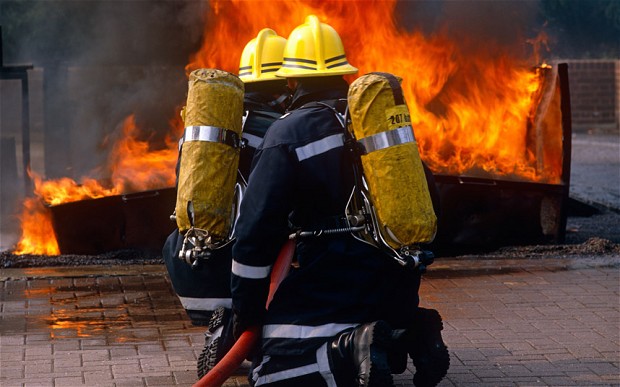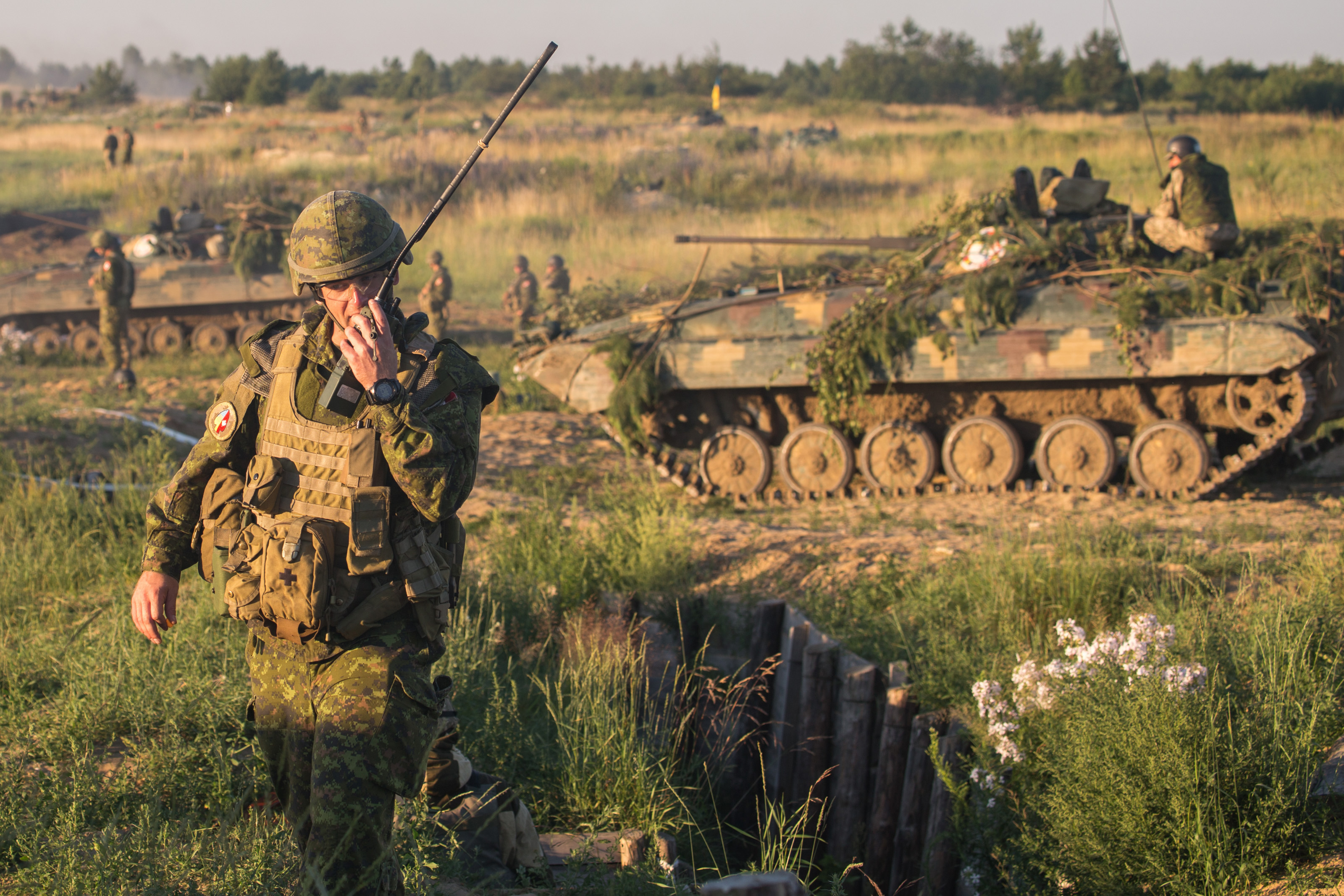Operation IMPACT is currently the largest deployed operation in the Canadian Armed Forces (CAF). The operation consists of Canada’s contribution to global efforts to defeat
Editors: What was your specific role in Operation IMPACT in Iraq?
Brigadier-General Keiver: I was the commander of the joint task force Operation IMPACT. That means that as the senior Canadian on the ground, I was the national command and support element for all Canadian Armed Forces and personnel, not just in Iraq but also in Jordan and Lebanon.
Editors: In what ways does Operation IMPACT differ from other operations the CAF has been a part of in the past?
Brigadier-General Keiver: Operation IMPACT started similar to many of our other missions in terms of what I would characterize as a hard military mission. You know, aircraft, dropping bombs, and all those things. Because of the needs and requirements of the changing situation, Op IMPACT has become very much about building partner capacity. In other words, giving the Iraqis, the Jordanians and the Lebanese the means to enhance and maintain security within their own countries, by themselves. What has happened is that now, we are very much in the background as compared to the forefront. It’s focused much more on our partners as compared to the men and women in the Canadian forces. We view ourselves as the ones that are there to train, mentor, and to assist them so they get to a point where they can maintain stability on their own. There were elements of that in Afghanistan, but there was also that hard kinetic element in terms of having a battle group on the ground. In this case, there is no real combat element to Op IMPACT anymore, it is very much entirely about building partner capacity on a larger level and through a regional approach.
Editors: What do you mean by ‘regional’? Are you referring to Op IMPACT being in Jordan and Lebanon as well?
Brigadier-General Keiver: When I say ‘regional approach’, I’m referring to the fact that the CAF effort in Op IMPACT is very much nested in the Government of Canada’s strategy in the Middle East, and the nations specifically identified within that Middle East strategy are Lebanon, Jordan, Syria and Iraq. The region stretches from the Mediterranean to the Persian Gulf. The goal is to ensure that they’ve got the means to maintain stability because if those governments fall, then they end up in the same place as Iraq was in 2014. In that way, the governments in those countries will have more time and space to deal with all the other things outside of the security realm like the provision of essential services, the distribution of resources, the settlement of grievances, etc.
Editors: Although Operation IMPACT is a regional approach, does it somewhat vary in the approaches taken towards a certain country?
Brigadier-General Keiver: Yes. Operation IMPACT has its own nexus on the security environment, and each effort in those countries is tailored to that country because they all have different needs and requirements. So, by taking a regional approach, it allowed us to develop a better understanding of how things to play together. We were able to leverage the few resources we do have, and then as a regional commander, I can move resources around the theater as required. It is very much a country by country approach.
Editors: What are some indicators Operation IMPACT uses to gauge the extent to which progress has been made in terms of training and capacity building?
Brigadier-General Keiver: That’s a good question. Indicators are tough, they are difficult to develop and it’s something we continually talk about. Initially, when we started the building partner capacity mission in Iraq, it was very much in reaction to an existential threat. It was about getting the Iraqi security forces through training and onto the field, so they could liberate Iraq from Daesh. Now that that’s been achieved, the performance indicators and measures of success are changing. It’s now not examining just their ability to conduct military operations, but the way in which they conduct military operations. Are they respecting the law of armed conflict? Are they respecting human rights? Are they detaining people in the conduct of operations and then ensuring that those detainees are taken in to custody properly and then turned over to competent legal authorities? Those are the fundamental questions that we are all looking at, in terms of success. A short way of putting it, is that the measures of success and the indicators change as the needs and requirements change. It’s a continuous process we go through to make sure we are measuring as best as we can at that time.
Editors: So far, have the expectations of deployment training matched with the realities found in Iraq?
Brigadier-General Keiver: I think pre-deployment training is an interesting question in the sense that I don’t think we can ever completely replicate what the Canadian Armed Forces’ men and women are going to go into when they get there. I can put them in a training scenario in Canada, but without actually immersing them, not just in that operating environment, but also in that culture and society, it is really hard to get it a hundred percent. The idea is to get them to a point that is good enough, so you have a clear caveat going into the mission, with eyes and mind wide open prepared to learn. And what I see happening in Op IMPACT is that our CAF men and women are learning probably just about as much as the people we are working with because it’s not just a matter of doing anymore. It’s a matter of teaching, and in order to be a good teacher you have to elevate your knowledge. And in order to teach, you have to have knowledge of that society. It a continuous process. The pre-deployment training gives them enough to get out the door. But, the evolution and development of the soldiers happens during the entirety of the mission. They get better, the longer they’re there.
Editors: What would you say have been the most challenging aspects of the mission?
Brigadier-General Keiver: The geographic dispersion of the mission. Op IMPACT is operating literally from the Mediterranean all the way to the Persian Gulf, and then all the way down to Qatar. So, you’re operating in a geographic region that is huge, and then within that geographic region, you’ve got very small specialized elements of the team. So, the challenge is really maintaining the ability to affect command and control over a geographic region that large, while making sure that we are doing the right thing. You got to weigh in the cultural sensitivities, the uniqueness of each nation, the uniqueness of each of the requirements and so on. It was really difficult to put it all into a single two-page briefing note for Ottawa because it’s so complex and it takes you that long to gain that understanding of what’s going on there. That was absolutely my biggest challenge.
Editors: In general, do you think foreign military missions have a responsibility to ensure a long term reconstruction plan?
Brigadier-General Keiver: I will state categorically that reconstruction is not the role of the military. Reconstruction is the role of the government; it is the role of international organizations, the UN, things like that. The military is very much about going in and getting the security situation to a point where, instead of people trying to do horrible things to one another, they’re actually willing to sit and talk because they know that the consequences of doing horrible things are more horrible things. What has happened with the military campaign in Iraq, in particular, is that it has gotten to a point where Iraq has been liberated from Daesh control in terms of the physical caliphate. Daesh is now an insurgency trying to rebuild itself in the background. The Iraqi security forces with the broader coalition are working hard to keep that insurgency down as much as possible. It is about the Iraqis while the broader society and government sort out the other things, including reconstruction. The military really does not have a significant role to play in reconstruction. There are some specific elements of the projects that we might get involved in, like bridges or common infrastructure, where there is a joint requirement whereby we both need to move people. In that case we could build a bridge, but reconstruction is a different part. It would fall into that stability piece as compared to the security piece.
Editors: This final question is in regards to Operation Presence (the mission in Mali). What are your thoughts about Operation IMPACT being prioritized over the campaign in Mali, since the government plans to pull out in July?
Brigadier-General Keiver: interesting that you have that perspective, from my perspective as the commander of Op IMPACT, it was made very clear to me that Op IMPACT was not the highest priority. Mali was actually a higher priority in the department than Op IMPACT in terms of generating the mission from a departmental perspective. The decision to cease Op Presence is a governmental decision, so from a departmental perspective it was absolutely at a high priority, and there were three general missions that we highly prioritized. These were Op Reassurance, Op IMPACT and Op Presence. The decision to pull them out of Mali was absolutely a governmental decision, not a departmental one.
Editors: Thank you, General, for your time.
Disclaimer: Any views or opinions expressed in articles are solely those of the authors and do not necessarily represent the views of the NATO Association of Canada.




